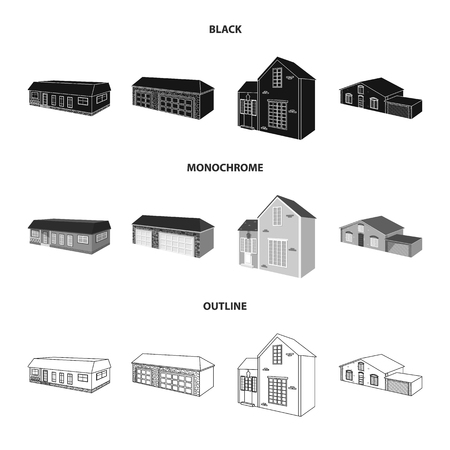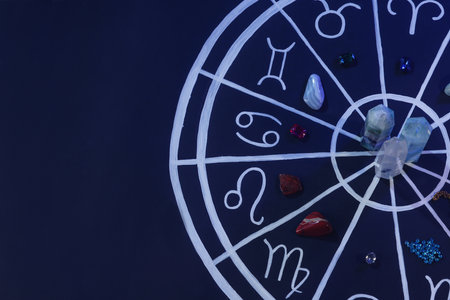1. Introduction: The Unique British Take on Astrology
Astrology has long held a peculiar allure in the United Kingdom—a nation equally at home with ancient tradition and bold innovation. From the stately halls of Buckingham Palace to the electric energy of Glastonbury, the British public’s fascination with the stars is woven into the fabric of its culture. But what sets the UK apart is how astrology is interpreted, particularly through the lens of astrological houses—those twelve distinct sectors that shape an individual’s birth chart. In Britain, these houses are not merely mystical markers; they become mirrors reflecting society’s obsessions, ambitions, and quirks. When we examine the birth charts of iconic Britons—from royal heirs to pop revolutionaries—we uncover not only their personal destinies but also broader cultural narratives. This exploration offers more than just star-studded intrigue; it reveals how astrological houses serve as windows into the British psyche, capturing everything from public duty to creative rebellion. As we delve into these famous charts, we’ll discover why astrology remains a cherished compass for understanding both personal fate and national character in the UK.
2. The Royal Horoscope: Houses Shaping the Monarchy
When it comes to the British royal family, astrology takes on a particularly intriguing role, illuminating the interplay between personal destiny and public expectation. By examining the birth charts of prominent royals such as King Charles III, Princess Diana, and Prince William, we can see how certain astrological houses speak volumes about their sense of duty, tradition, and the ever-watchful gaze of the nation.
The Key Astrological Houses in Royal Charts
Within astrology, each “house” represents a specific arena of life experience. For the monarchy, three houses stand out: the 4th (roots and heritage), the 10th (public image and career), and the 7th (partnerships and alliances). These houses not only reflect individual character but also mirror the broader responsibilities embedded within royal life.
| Royal | Notable House Placement | Astrological Significance |
|---|---|---|
| King Charles III | 10th House prominence | A strong sense of public duty; legacy-driven leadership |
| Princess Diana | 7th House focus | Emphasis on relationships; deep empathy with the public |
| Prince William | 4th House influence | Connection to family roots; role as custodian of tradition |
Duty & Destiny: The 10th House in Action
The 10th house is often called the “House of Status” – fitting for those born into royalty. King Charles III’s chart reveals significant planetary activity here, symbolising a lifelong preparation for kingship and a nuanced relationship with authority. This house highlights how his public persona has been shaped by both personal ambition and inherited obligation.
The People’s Princess & The 7th House Connection
Princess Diana’s birth chart showcases her 7th house – the realm of partnerships. It’s no coincidence that she became an icon for compassion and connection. Her ability to bridge the gap between palace walls and everyday Britons was written in her stars, making her not just a royal by title but by heartfelt resonance with her people.
The Heritage Keeper: Prince William’s 4th House Roots
For Prince William, the 4th house speaks to his deep ties to ancestry and homeland. His chart suggests he is both heir and guardian – someone who balances modern expectations with centuries-old customs. In a changing Britain, this placement may well explain his pragmatic approach to blending tradition with progress.
The astrological houses don’t just chart fate; they reveal how British royals navigate the unique pressures of monarchy—offering us a celestial perspective on why their lives continue to fascinate subjects across the UK and beyond.

3. From Swinging Sixties to Modern Icons: Musicians and the Houses
When it comes to British culture, few exports rival the nation’s music scene. From the trailblazing days of The Beatles, through the flamboyant genius of David Bowie, to Adele’s heartfelt ballads, these icons have left an indelible mark on the world stage. But what cosmic signatures lie in their birth charts? By dissecting the astrological houses in their natal charts, we uncover how each house may have shaped not only their talents but also their public personas and influence.
The Beatles: Collaboration and the Eleventh House
The Beatles, synonymous with the Swinging Sixties, revolutionised music and popular culture. Astrologically, strong activity in the eleventh house—the house of groups, friendship, and collective goals—often appears in group-oriented icons. In many of The Beatles’ charts, significant planets occupy this house, reflecting a synergy that fuelled both creative collaboration and cultural change. Their legacy is a testament to how the eleventh house can manifest as enduring teamwork and mass appeal.
David Bowie: Persona and the First House
David Bowie redefined reinvention. His birth chart reveals notable placements in the first house—the domain of self-image and identity. Bowie’s ability to shapeshift across eras and genres echoes this astrological emphasis; he crafted alter egos like Ziggy Stardust that captivated audiences worldwide. Through his first house energies, Bowie became more than a musician: he was a walking canvas for British avant-garde expression.
Adele: Voice and the Second House
Adele’s powerhouse vocals and soulful lyrics have resonated with millions. Her chart shows significant activation of the second house—the realm of values, self-worth, and material resources. This placement often points to an innate sense of personal value expressed through tangible gifts—in Adele’s case, her extraordinary voice. It’s no wonder she has become a national treasure, embodying both emotional depth and commercial success on a global scale.
By examining the astrological houses in these musical legends’ charts, we see not just personal destiny at play but also broader patterns in how British talent shapes—and is shaped by—the collective spirit of its times.
4. Screen Legends and Comedians: Spotlight on Stardom and Humour
When it comes to British culture, few exports rival the impact of its film and comedy legends. Analysing the astrological houses in the birth charts of icons like Dame Judi Dench and Ricky Gervais reveals how cosmic placements can illuminate paths to stardom and underpin that distinctively British sense of humour.
The First House: Presence and Persona
Dame Judi Dench, often hailed as the grand dame of British stage and screen, boasts a strong First House influence in her chart. This house governs self-presentation, charisma, and public image—qualities that have defined her decades-long career. For comedians like Ricky Gervais, the First House often signals a boldness and authenticity that captivates audiences. It’s no surprise their personalities command attention on both sides of the camera.
The Fifth House: Creativity, Performance, and Joy
In British astrology circles, the Fifth House is known as the heart of creativity—perfect for actors and comedians alike. A quick comparison highlights how this house empowers both drama and comedy:
| Name | Key Fifth House Placement | Impact on Career |
|---|---|---|
| Dame Judi Dench | Venus & Mercury | Refined creative expression, emotional resonance in dramatic roles |
| Ricky Gervais | Mars & Jupiter | Biting wit, fearless comedic risk-taking, global success with “The Office” |
The Tenth House: Reputation and Enduring Legacy
The Tenth House governs public life, status, and legacy—a house where many British stars shine brightly. Dench’s chart reveals Saturn here, signalling discipline and longevity in her craft. Gervais’s Uranus placement suggests an unconventional rise to fame and an ability to disrupt traditional comedic norms—very much in tune with the UK’s appetite for innovation.
British Wit: Cosmic Roots?
The unique British sense of humour—dry, ironic, sometimes mischievous—often finds its roots in specific astrological configurations. Mercury aspects lend sharpness of mind; planetary influences from Gemini or Aquarius can foster originality or eccentricity. In both Dench and Gervais’s charts, we see these planetary signatures at play, aligning perfectly with their reputations for intelligent banter and memorable one-liners.
Together, these astrological houses reveal how Britain’s beloved screen legends and comedians have carved out their places not just through talent but also through a cosmic blueprint that fosters stardom—and ensures that signature British humour resonates far beyond these isles.
5. Politics, Pundits, and the Public Eye
In Britain’s storied political landscape, the influence of astrological houses on the nation’s leaders and commentators is nothing short of fascinating. Take Sir Winston Churchill: his birth chart, rich in tenth house energy, speaks volumes about his destiny to lead and shape history. The tenth house in astrology traditionally governs career, status, and public image—traits that echo through Churchill’s wartime resolve and statesmanlike legacy. For such political heavyweights, it’s as if the cosmos itself set the stage for public duty.
The Tenth House: Where Ambition Meets Legacy
For many British politicians, the interplay between personal ambition and national service finds its astrological home in the tenth house. Charting figures from Margaret Thatcher to Tony Blair, we consistently see prominent planets or significant aspects energising this sector. It’s not just about power—it’s about a sense of responsibility that transcends self-interest, with the public eye acting as both audience and judge.
Pundits and Commentators: The Third House Connection
Move beyond Parliament Square to Fleet Street and the BBC studios, and you’ll find another astrological pattern emerging. Media personalities and political commentators often show third house prominence—the realm of communication, information exchange, and opinion-shaping. Consider figures like Jeremy Paxman or Emily Maitlis: their charts frequently highlight Mercury or other communicative influences in this house, reflecting a drive to question authority and inform the public.
The Dance Between Private Motives and Public Duty
What makes these British icons so compelling is how their personal narratives—mapped out in their astrological houses—mirror the nation’s ongoing dialogue between private beliefs and collective identity. Whether leading from Number 10 or challenging policy on Newsnight, these individuals embody the tension between individual destiny (the first house) and service to society (the sixth and tenth houses). Their stories remind us that in the UK, where tradition meets transformation, astrology offers a unique lens on how personal pathways can align with—and even alter—the course of history.
6. Common Threads: British Identity through the Houses
Astrology, with its intricate system of houses, offers a fascinating lens through which to view Britain’s most iconic figures, from the Queen herself to contemporary pop legends. What unites them is more than just fame; it’s the subtle thread of Britishness woven through their birth charts, revealing shared astrological themes despite their diverse backgrounds. When examining the 4th house—the realm of roots and heritage—it’s no coincidence that both royal and musical luminaries display strong placements here. This house often manifests as an enduring connection to homeland and tradition, a quality that permeates British identity, whether it’s the monarchy’s ancestral legacy or a musician’s nostalgic nods to hometown streets in their lyrics.
The 10th House: Public Persona and National Spotlight
The 10th house, governing career and public image, takes on a distinctly British flavour in these charts. Royals like Princess Diana channelled this energy into compassionate public service, while stars like David Bowie transformed it into boundary-pushing artistry that resonated both locally and globally. The UK’s unique blend of reserved tradition and avant-garde creativity is mirrored in these figures’ approach to fame—never just self-promotion, but a sense of responsibility to the collective story of Britain.
The 11th House: Community and Collective Influence
Britain’s icons often have striking 11th house activity, highlighting their roles as agents of social change or cultural unity. Whether leading charitable causes or breaking new ground in music and fashion, they embody the British knack for quietly rallying others behind a cause—often with that characteristic wit and understatement.
British Context Shapes Astrological Expression
Ultimately, what makes these patterns distinctively British is how the national character infuses each house. The stiff upper lip of Saturnian discipline, the subversive humour found in Mercury’s placements, or the understated elegance of Venus—all are refracted through the prism of local custom and history. Spotting these threads across such different personalities reminds us that astrology doesn’t exist in a vacuum: it dances with culture, context, and collective identity—never more so than in the lives of those who define what it means to be British.
7. Conclusion: What the UK’s Stars Tell Us about Ourselves
Analysing the astrological houses within the birth charts of Britain’s most celebrated figures – from royal heirs to pop royalty – is far more than a quirky pastime; it serves as a cultural mirror, reflecting back the values, dreams, and contradictions woven into the national identity. When we peer into the twelfth house of Princess Diana or explore the commanding tenth house placements in David Bowie’s chart, we are not just dissecting personal destiny but also tapping into archetypes that resonate deeply with the British psyche.
The ongoing fascination with astrology in the UK speaks volumes about our collective yearning to understand fate and individuality. It’s a uniquely British blend of curiosity and scepticism: on one hand, there’s a playful indulgence in star signs over tea; on the other, a serious investigation into how planetary positions may subtly shape public life and legacy. This dance between tradition and modernity – seen in everything from horoscopes in broadsheets to astrological references at Glastonbury – underscores a national narrative that prizes both reason and wonder.
By tracing the themes of prominence (tenth house), communication (third house), or transformation (eighth house) in the lives of icons like The Queen or Adele, we gain fresh insights not only into their journeys but also into what Britain celebrates, challenges, and aspires towards. Ultimately, reading these celestial blueprints invites us to reflect on our own stories: how do we define success? What is our relationship with heritage and innovation? And how does our collective imagination continue to be shaped by those who walk before us under the same British skies?
In sum, exploring astrological houses through the lens of UK fame is more than stargazing; it’s a way of understanding ourselves – as individuals, as a society, and as part of an ever-evolving conversation between destiny and identity.


